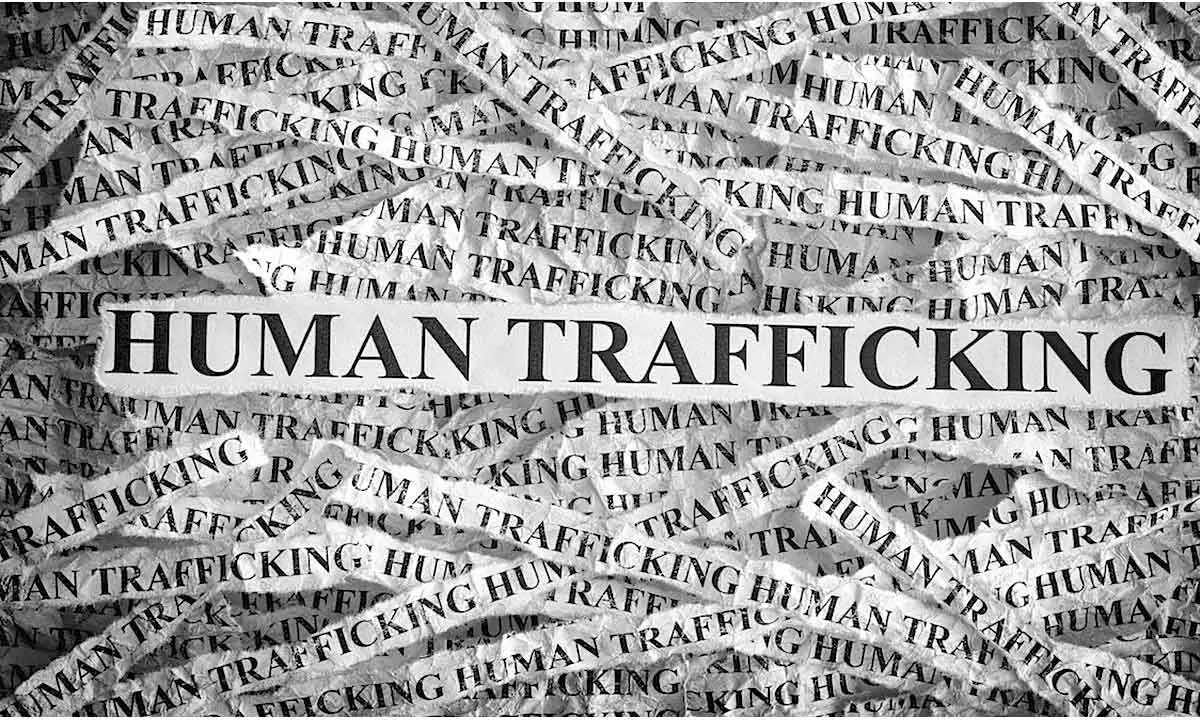Live
- IPL 2024: Fraser-McGurk, Porel fifties; Stubbs’ 41 propel DC to 221/8 against RR
- U20 men’s football nationals: Kerala beat Haryana to enter quarters; A.P. draw with Gujarat
- EPFO evaluating course of action over HC ruling on foreign workers
- Political slugfest surfaces in Bengal after SC puts interim stay on cancellation of 25,753 school jobs
- Apple launches iPad Pro with M4 chip and AI capabilities
- Congress stands for National unity says Arathi Krishna
- The dynamics of tax cuts and collections under Modi govt: A tale of prosperity
- ‘Inspiring to see the focus of sports expanding beyond cricket’: State-of-the-Art sports arena unveiled in Delhi
- Voltas Q4 net profit dips 19 per cent, declares dividend of Rs 5.50 per share
- Madigas should Vote for BJP to protect their self respect.Manda Krishna madiga
Just In
Poor implementation of welfare measures left trafficking survivors in lurch in AP


Poor implementation of welfare measures by the State government for the human trafficking survivors is leaving them in the lurch, observed Vimukti, HELP and other NGOs working in the State.
Ongole (Prakasam District): Poor implementation of welfare measures by the State government for the human trafficking survivors is leaving them in the lurch, observed Vimukti, HELP and other NGOs working in the State. The organisations sought information on the measures in force by the government to control human trafficking and protect the survivors and give them the chance to lead their life with dignity, through a Right to Information application. But the study on the reply by the concerned proved that there are several contradictions to the actual ground level situation in the state.
The GO MS 1/2003 contained provisions for the setting up of infrastructure at State and district level to counter and prevent trafficking, rescue, rehabilitate, support the victims and provide relief to them. The GO is welcomed by Vimukti- a Survivor Leader's Collective, HELP and other NGOs, as they pointed out the link between improved rehabilitation services and reduced second-generation trafficking, and also reduce chances of re-trafficking and re-victimization of the survivors.
Recently, Vimukti filed RTI queries on the implementation status of GO MS No 1/2003, the celebrated policy for combating the trafficking of women and children for commercial sexual exploitation, between 2015 and 2020. The Women Development and Child Welfare department replied to the RTI application but provided several contradicting answers to some questions and showed no interest to answer several.
The study of the answers for the RTI application proves that the ground-level situation in the State is very much different and questions the veracity and accuracy of the information provided. The data shows that there is no information on the meetings of State level coordination committee under the leadership of the Chief Secretary, while the information provided for district-level committees under the leadership of the Collector is full of errors.
The GO provides prevention of trafficking by addressing the root causes of trafficking, including poverty and illiteracy and conducting awareness programmes and developing response strategies, by the district committees. However, only Prakasam district undertook economic empowerment of 26 survivors of trafficking between 2015 and 2020, and no other district cared about them. No children of trafficking survivors were joined in transit schools or received scholarships, but six children are able to get tuition services to prevent school dropouts in the state from 2015 to 2020.
According to the data from National Crime Records Bureau, 656 cases of human trafficking were reported in Andhra Pradesh from 2018 to 2020, and 257 victims are rescued. The anti-trafficking squads at erstwhile Krishna, Guntur, Nellore, Kadapa, Kurnool and Anantapur didn't rescue a single victim between 2015 and 2020. Though the law has provisions to confiscate the assets of exploiters, only 121 of the 171 trafficking cases reported in Andhra Pradesh in 2020 were charge-sheeted, and just five of them led to convictions in court, as the lack of support prevents the victims to testify against the traffickers. The information received for the RTI shows that despite a great number of victims being rescued in the state, only a small percentage of them received rehabilitation, immediate relief and support services, that too in Prakasam, Guntur and Krishna districts majorly.
Nimmaraju Rammohan, secretary of Vimukti and HELP, is a member of State and Prakasam district level committees to implement the GO MS 1/2003. He said that not a single district-level committee meeting was held since 2015, but the government claimed to conduct eight meetings between 2015 and 2020, and discussed 'strengthening of community vigilante groups conducting awareness camps to women and girl children in vulnerable areas' and benefitted 26 victims.
Rammohan suggested the government provide alternative livelihoods to trafficking victims through SHGs and cooperatives to break the chain of debt bondage, introduce the community-based rehabilitation model, provide loans on subsidies and training for livelihoods, and implement 50 per cent reservation to the victims in the employment at NGOs running programs with support and funds from government, reintegrate the survivors with their families by ensuring the protection of victims and witnesses.
He recommended the government cover psychological, economic, physical and socio-cultural wellbeing as part of the rehabilitation, offer therapeutic interventions to the victims of commercial sexual exploitation to help them overcome their traumatic memories, establish special courts with special judges, and priority hearings to expedite justice to help the victims reintegrate into society.

© 2024 Hyderabad Media House Limited/The Hans India. All rights reserved. Powered by hocalwire.com






